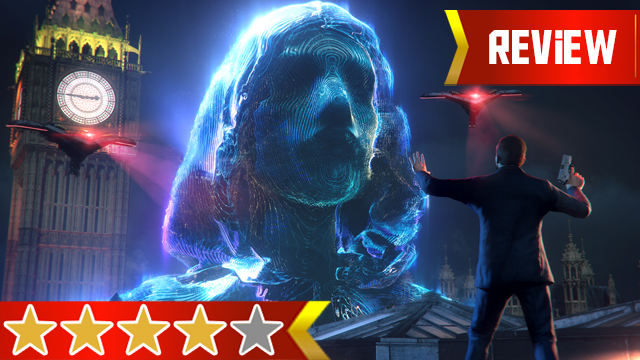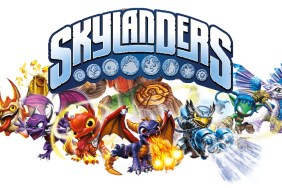Watch Dogs: Legion review for PS4, PS5, Xbox One, Xbox Series X, PC, and Google Stadia.
Watch Dogs: Legion is Ubisoft Toronto’s attempt at bringing one of the publisher’s lesser appreciated series in-line with Assassin’s Creed and Far Cry, attaching to it an eye-catching feature that allows players to “recruit and play as anyone” within the game’s world. But despite this sounding like an overly ambitious gimmick, Ubisoft pulls it off with gusto, transforming its open-world London into a playground for an abundance of ridiculous characters to experiment in. There are hooligans who can rally a faction of drunk football fans to fight alongside them, old men whose farts or hiccups alert enemies to their presence, and even unfortunate souls who will spontaneously die for no good reason. It’s tremendous fun, despite recurring problems we’ve come to expect from Ubisoft games occasionally threatening to derail the experience.
“Recruit anyone” is a gimmick that actually works
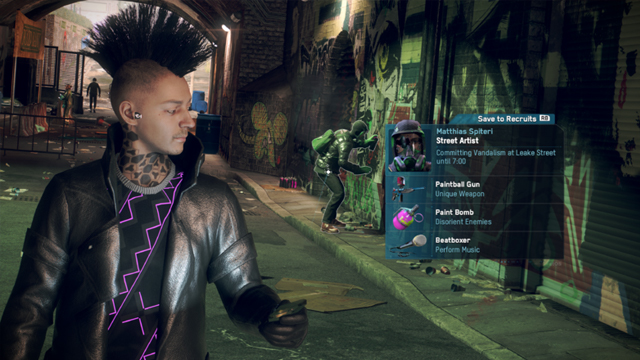
Watch Dogs: Legion once again sees anarchist hacker group DedSec trying to overthrow a shady, corrupt organization, this time taking on Albion, a militarized police force that has a stranglehold on England’s capital city. DedSec seeks to take down Albion by way of recruiting London’s populace, with each recruited ‘Operative’ having their own unique set of skills they bring to the table.
Operatives are brought into your DedSec team by way of tapping into their phone and then embarking on a special recruitment mission. Each of these unique missions involves a favor they need carrying out, whether that’s stealing an ambulance of drugs or hacking into a server to delete sensitive information. After completion of the recruitment mission, you can immediately begin playing as your new Operative, transforming an NPC into a player-character.
Given the ludicrous nature of this gimmick, I had anticipated that Ubisoft would cut several corners in order to implement it. Surely there couldn’t be that much difference between playable characters? However, I was routinely surprised by just how much detail has gone into making this feature a reality, from the unique abilities given to each NPC through to their distinguishable personalities and voiceovers.
Not only does each Operative come with their own abilities, from a tech bro able to take control of an electrified shock drone through to a beekeeper who can send swarms of robotic bees to take down enemies, but they have their own personalities and voice lines, too. During missions, your recruited team of Operatives will call one another, offering their own take on your objectives. It’s limited — you shouldn’t expect too many divergent personalities or any renegade recruits among your ranks — but there’s enough variety to make each Operative distinguishable from the last.
Cartoon villains spoil the story
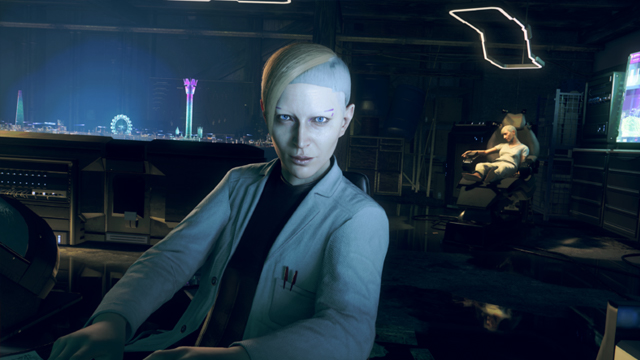
However, the same cannot be said for Watch Dogs Legion‘s cast of villains. Like Watch Dogs 2 and many other Ubisoft games before it, Legion crucially suffers from a disparity between gameplay and tone. The brutally evil selection of antagonists you face off against show no signs of humanity, with you being offered brief yet jarring insights into their staggeringly cruel machinations, before hopping back into Legion‘s weird open-world of spider robots and farting grandmothers.
Legion is another example of Ubisoft struggling to tread the line between telling a compelling story and ensuring it still makes for a fun game. Some truly heinous acts are committed in front of DedSec’s eyes, yet these moments are so frequently over-the-top that they fail to be memorable. Each villain is more cartoonishly dastardly than the last, so when one fascistic tech genius turns their relative into an AI supercomputer, it isn’t as impactful as this plot point would seem on paper.
The limited interactions with its core antagonists felt like I was on a whistle-stop tour of the most heinous elements of modern society, from racism through to human trafficking, with Ubisoft packing all of their villains’ evil into a few cutscenes. It’s overwhelming and ultimately resulted in me tuning out mentally in order to enjoy its ludicrous world, which is where Watch Dogs: Legion is at its best.
London’s never looked so good
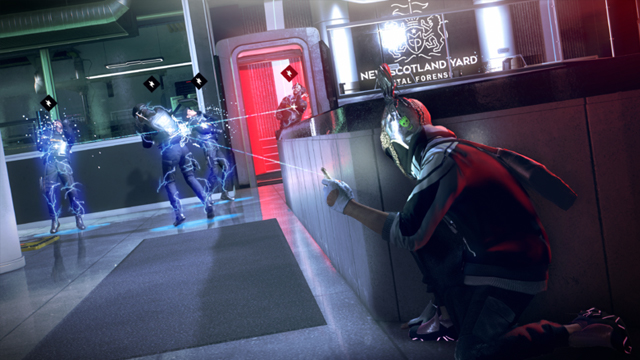
With Watch Dogs: Legion, Ubisoft has created arguably its most vibrant, lively open-world yet. London is an impressive not-too-futuristic recreation of the capital, with every major location and landmark changed just enough to fit into its cyberpunk aesthetic, yet not so much that it’s unfamiliar. It’s unusual for an English city to be a setting in a modern blockbuster game, so I was taken aback when I realized I was walking down streets that were immediately recognizable to me as a UK citizen rather than a block in far-flung San Francisco or LA.
A great deal of time has clearly been put into voiceovers that are reflective of the multicultural setting. While some of these accents can be hit and miss — I was not a fan of the middle-aged, white babysitter who insisted on using “brrrap!” to convey her excitement — it’s impressive that there are so many different options and characters from such different backgrounds. However, in a tumultuous 2020 for Ubisoft in which allegations of sexual harassment and misconduct have been leveled at the company, DedSec’s goal of an egalitarian society feels at odds with what we’ve heard of its creator’s real-world company culture. While Ubisoft has claimed it is working to resolve these internal issues, that Legion is its first major release since these revelations causes its efforts towards representation to feel quite hollow.
And while Watch Dogs: Legion is a tremendously good-looking game, it’s clear that its sheer scale pushed my Xbox One X to its limits, with its frame rate occasionally dipping below the 30 FPS mark and the game suffering from some hard crashes. While these only happened a handful of times, it’s worth mentioning and will hopefully be rectified in a post-launch patch. This problem wasn’t experienced by my colleagues playing the game on PC, and it’s unclear if the PS5 or Xbox Series X versions would therefore face the same issues, too.
A hacker’s paradise
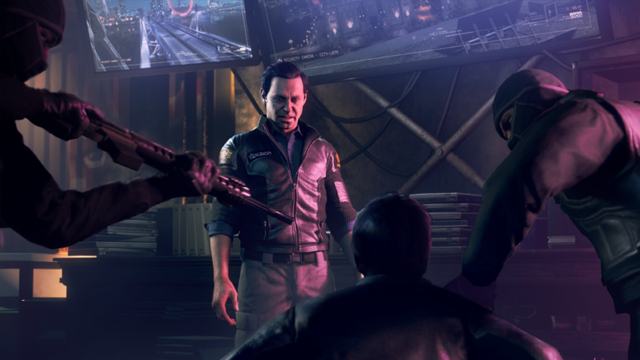
I was also taken aback by how these characters are integrated into the wider world after you analyze or recruit them. During one car chase, I drove down an alleyway only to narrowly avoid hitting an Operative I had failed to recruit hours earlier. Rather than being a dropbox of randomized and interchangeable NPCs, these characters continue to live in London even after you’re finished with them, and there’s the possibility you’ll find them roaming the streets as a result. You can also anger potential recruits and cause them to lash out with your currently enlisted batch of Operatives — one bare-knuckle fighter working for a criminal gang kidnapped my favorite character, and I was then tasked with a mission to go and rescue her from a hideout.
These Operatives organically blend into Watch Dogs: Legion‘s open-world as seamlessly as its hacking, which has received an abundance of additions and improvements this time around. Drones hovering above can be hijacked, disabled, and forced to betray the enemy, you can send vehicles crashing off the road during high-speed pursuits, and you can utilize a combination of your special gadgets to infiltrate any enemy-controlled building. For pacifist players, a non-lethal playthrough is more of a possibility than ever, with most Operatives coming armed with a fast-firing stun gun and a slew of tech allowing you to take down enemies without having to kill them.
But while there is plenty of variety in the Operatives you can control and the abilities they have at their disposal, the loop of infiltrating buildings and hacking enemies can grow repetitive. Watch Dogs: Legion excels when you’re able to use some ridiculous ability to forge your own shortcut in a mission, but there are so many abilities that Ubisoft is inevitably unable to take full advantage of a number of them. As such, many missions are best carried out by turning yourself invisible and hacking a bunch of cameras, abilities which are available to every character.
Watch Dogs: Legion Review | The final verdict
Despite its issues, considering just how many variables there are in Watch Dogs: Legion, it’s a wonder that it works as well as it does. It’s Pokemon but with people, with the player wandering around London and “catching” weird and wonderful Operatives to add to their unlikely team of hackers. Its story may be tonally inconsistent in typical Ubisoft fashion, but it’s best enjoyed with your brain taking the backseat while your hiccuping drunk super-spy takes the wheel. While another cyberpunk game might do the genre’s themes more justice later this year, Watch Dogs: Legion‘s beautiful London and its array of recruitable denizens make it one of the most enjoyable games of the year.
Watch Dogs: Legion reviewed by GameRevolution on Xbox One. Code provided by publisher.
-
The "recruit anyone" feature actually works!
-
Tons of variety in Operatives and unique ways to take on objectives.
-
London looks beautiful and is fun to explore.
-
Unique personalities and dialogue for Operatives.
-
Its tone is inconsistent and it relies too heavily on shockingly evil antagonists.
-
Repetitive missions.
